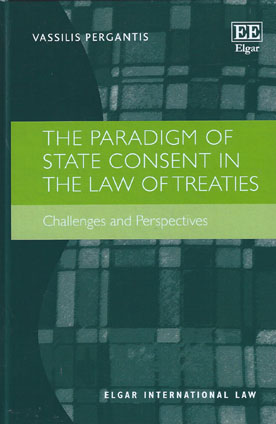
This insightful book offers a comprehensive account of the conceptual challenges facing state consent in the framework of treaty making.
It highlights the relevant discursive patterns and pinpoints the increasing antagonism between treaty bodies and state parties over the ownership of treaty evolution, with the author warning of the repercussions of treaty institutionalization.
Showcasing the broad and encompassing nature of treaties, the author highlights the surrounding conflicts through chapters on the theory and concept of treaty, and case-studies on the flexibility of processes concerning consent to be bound, on treaty withdrawal, and on the automatic succession doctrine and the law of reservations.
The last part of the book explores how the invocation of the collective interest ideal, the institutionalization of treaties and the recurrence of formalism can endanger the legitimacy and effectiveness of treaty regimes.
This book offers an original perspective on the role of state consent in the law of treaties and will be of great interest to academics, researchers and practitioners of international law seeking further knowledge about this complex topic.